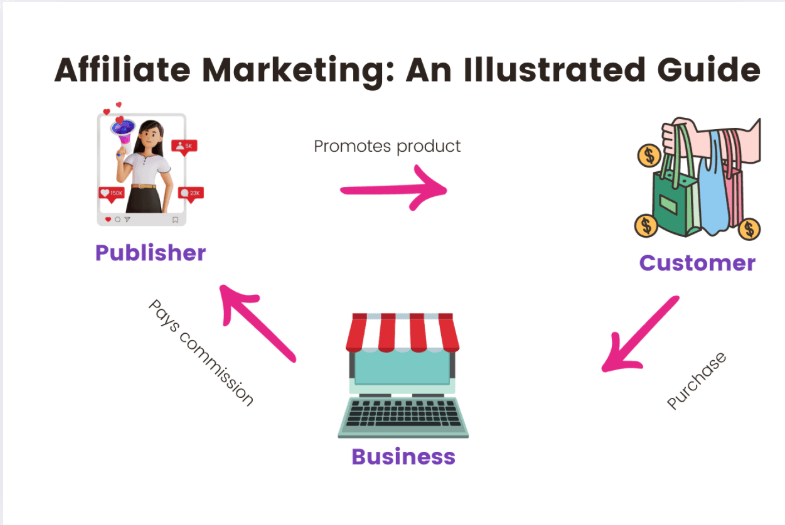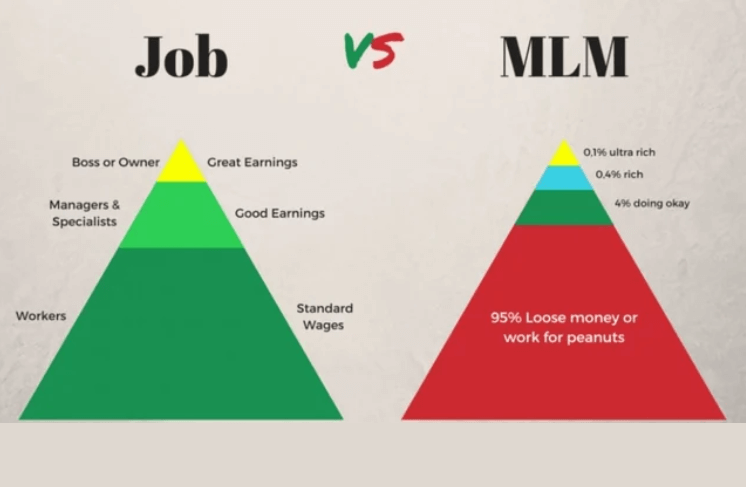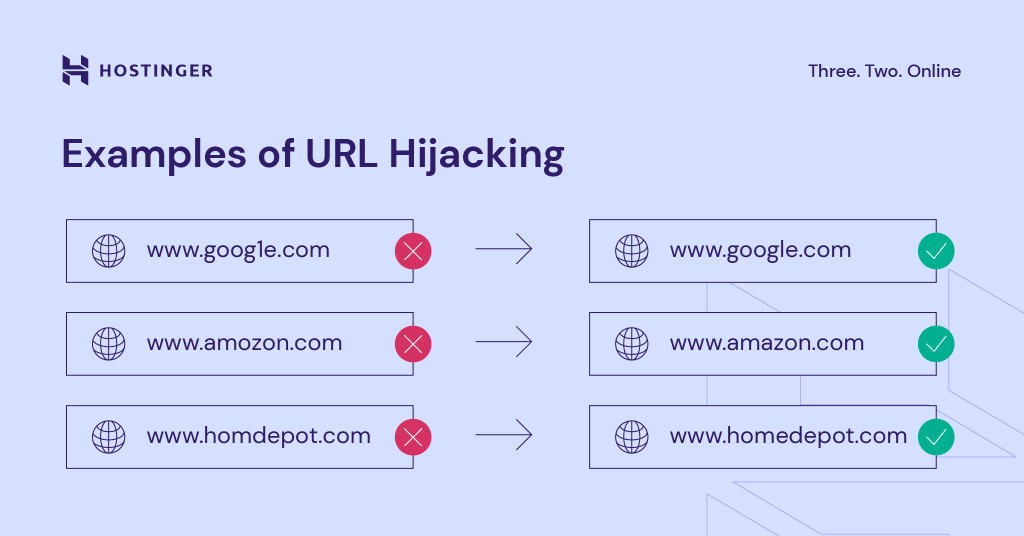You see the online success stories and think, “Can I do that too?” That’s the incredible promise of affiliate marketing. But for every success, you hear a warning about a fake guru or a costly scam, leaving you wondering what to believe.
So, Is affiliate marketing legit? How does affiliate marketing work? This guide will give you a clear understanding of how it works, how to spot the scams, and how to build a real, sustainable income. Start your affiliate journey today!
Key Takeaways
|
What is Affiliate Marketing?

Affiliate marketing is a win-win-win relationship between three main parties
Affiliate marketing is a performance-based marketing strategy where a person earns a commission for promoting another company’s products or services. When someone purchases through your unique link, you will receive a portion of the commission.
There are three main parties in affiliate marketing:
- The Merchant (or The Producer) – the company selling the product.
- The Affiliate (or The Publisher) – the promoter who drives sales or leads.
- The Customer – the person who buys the product through an affiliate link.
For example, when someone joins an Amazon Associates program and promotes a product on their blog, they earn a small percentage each time a reader buys through their link. For eBay, Affiliates can promote the millions of listings on eBay and earn a percentage of the sale. This is similar to Shopify affiliates.
Is Affiliate Marketing Legit?

Legitimate affiliate marketing is a respected business practice
Yes, affiliate marketing is completely legit. It is a standard and widely used advertising model. The core difference between a legal affiliate program and a deceptive offer is how you make money.
- Legitimate Affiliate Marketing is focused on commissions from product sales. Your income is based on your performance as a marketer. You promote a product, someone buys it through your link, and you get paid a percentage.
- Deceptive offers are often focused on recruitment or upfront fees. They may pressure you to buy expensive starter kits or pay to join the program. Their main goal is to take your money, not to help you sell a real product.
To protect consumers, organizations like the Federal Trade Commission (FTC) set rules for affiliates. For example, the FTC requires affiliates to disclose when links generate a commission. This ensures honesty and builds trust with readers, confirming the overall affiliate marketing legitimacy.
8 Common Affiliate Marketing Scams to Watch Out For
The world of affiliate marketing is full of potential, but it is also full of traps. Here are the eight most common deceptive offers you need to be aware of:
1. Get-Rich-Quick Schemes

Scammers often promise you’ll make thousands of dollars overnight
Scammers will paint a picture of earning thousands of dollars per week with no effort. They use flashy ads with expensive cars and mansions to lure you in. In reality, these are just empty promises designed to sell you worthless courses or tools.
How to avoid this scam?
- Affiliate marketing takes time and effort to build; there is no such thing as overnight wealth.
- If an offer sounds too good to be true, it probably is a deceptive offer.
2. Pay-to-Join Programs
This is one of the clearest red flags in affiliate marketing. Legitimate programs are always free because they want you to sell their products. In contrast, scammers make money by charging you a joining fee or forcing you to buy expensive “starter packs.”
How to avoid this scam?
- Never pay to join an affiliate program.
- Reputable companies will never ask for a fee to promote their products.
3. Shady Influencers and Products
Some self-proclaimed “experts” on social media sell expensive courses with very basic content. They may also promote low-quality products that are not real or offer no value. Their goal is to exploit your trust for their own financial gain.
How to avoid this scam?
- Type the expert’s name, the course title, and search terms that include the words “scam” and “fraud” into a search engine.
- If a company offers a product or service on terms that seem too good to be true, they are probably trying to scam you.
- Before becoming an affiliate, read the affiliate agreement. Determine if there are any potential loopholes or unclear language that is intended to benefit the merchant.
- Research other partners of the company and find out if they have had success. If in doubt, contact them and ask them directly.
4. Pyramid Schemes and MLMs

95% of pyramid scheme participants lose money or work for peanuts
Is affiliate marketing a pyramid scheme? The core difference is simple: Affiliate marketing pays you for product sales. Pyramid schemes pay you to recruit new members. In that model, most people lose money while only those at the top benefit.
How to avoid this scam?
- Affiliate marketing focuses on selling products, while pyramid schemes focus on recruiting people.
- If most of the income comes from recruitment instead of sales, stay away.
5. Phishing Scams
Beware of phishing emails impersonating networks like Amazon Associates or ClickBank. They lure you into clicking a link to “update your info,” which leads to a fake site designed to steal your password.
How to avoid this scam?
- Always carefully check the sender’s email address.
- Instead of clicking a link in an email, go to the official website yourself and log in from there.
6. Fake Traffic and Lead Fraud
Some fraudulent affiliates use bots to generate fake clicks and leads for unearned commissions. Major networks have tools to detect this fraud and will permanently ban accounts that violate their policies.
How to avoid this scam?
- Monitor your site traffic and other key analytics to identify unusual patterns that may indicate that the affiliate is using bots. For example, a rapid and dramatic increase in bounce rate.
- Use multi-factor authentication and CAPTCHA to avoid false orders from bots.
7. Transaction Frauds and Cookie Stuffing
Cookie stuffing” is an illegal fraud where an affiliate secretly drops their tracking cookie on a user’s browser without permission. The user doesn’t notice, but if they later buy from the merchant, the scammer unfairly earns the commission.
How to avoid this scam:
- Use advanced monitoring tools to identify affiliates with abnormally high conversion rates.
- Check user paths and cookie timestamps. If you find discrepancies or strange patterns, it may indicate that a partner is using this deceptive tactic.
8. URL Hijacking and Google Ad Hijacking

Some fraudsters will redirect your visitors to fake URLs to steal your commissions
A fraudster creates a fake website or runs Google Ads targeting your brand keywords. When a user clicks the ad, they are redirected to the fraudster‘s affiliate link. This allows them to steal the commission that should have rightfully been yours.
How to avoid this fraud?
- Regularly check to see if anyone is impersonating you in Google Ads.
- Report any violations to Google and other advertising platforms.
Tips to Avoid Affiliate Marketing Scams

Diligence and careful research are your best defenses against an affiliate marketing scheme
You can protect yourself from these schemes by being careful and doing your research. Here are some practical tips to follow.
- Do Your Research: Before joining any program, research it thoroughly. Look for reviews from other affiliates. Check for a history of complaints or payment issues.
- Join Communities: Join affiliate marketing forums or social media groups. These communities are a great place to ask for advice and learn from the experiences of others.
- Choose Reputable Products: Promote products and services that are well-known and have a good reputation. It is even better if you have used the product yourself and can genuinely recommend it.
- Track Your Real Traffic: Use analytics tools to monitor your traffic and conversion rates. Understanding your own data will help you spot any strange activity or results that seem too good to be true.
- Pay Attention to Cookie Duration: The cookie duration is the amount of time you have to earn a commission after someone clicks your link. Be clear on this and the payment terms before you start.
- Read the Terms and Conditions: Always read the contract. Pay close attention to the commission structure, payment schedule, and the rules of the program.
- Avoid Programs with Upfront Fees: As a general rule, avoid any program that asks you to pay to join. The best legit affiliate programs are free.
- Follow the Rules: Always follow the merchant’s anti-fraud policies. Do not use any dishonest tactics, as they will get you banned and ruin your reputation.
The Benefits of Legitimate Affiliate Marketing
When you avoid the scheme and focus on legitimate opportunities, affiliate marketing offers incredible benefits.
A Sustainable Passive Income Opportunity
While it takes work to set up, affiliate marketing can create a source of passive income. A single blog post or video can continue to earn you commissions for months or even years after you create it. It is a scalable business model with low startup costs.
Benefits for Everyone Involved
Legitimate affiliate marketing is a win-win-win situation.
- Merchants get more sales and a larger audience.
- Affiliates get to earn money by helping their audience solve a problem.
- Customers discover useful products from a source they trust.
Build a Career and a Personal Brand
Affiliate marketing is not just a side hustle; it can be a full-time career. By consistently creating valuable content and promoting quality products, you can build a strong personal brand and become a trusted expert in your niche. This opens the door to even more opportunities in the future.
Conclusion
So, is affiliate marketing legit? Absolutely. It is a proven and valuable business model for countless creators and businesses around the world. While scams exist, being informed helps you make smart choices.
At Golden Owl Digital, we believe that sustainable online success comes from transparency, effort, and authentic relationships. By learning how to identify red flags and work with trusted programs, you can turn affiliate marketing into a long-term opportunity.

Jaden is an SEO Specialist at Golden Owl Digital. He helps brands rank higher with technical SEO and content that resonates






